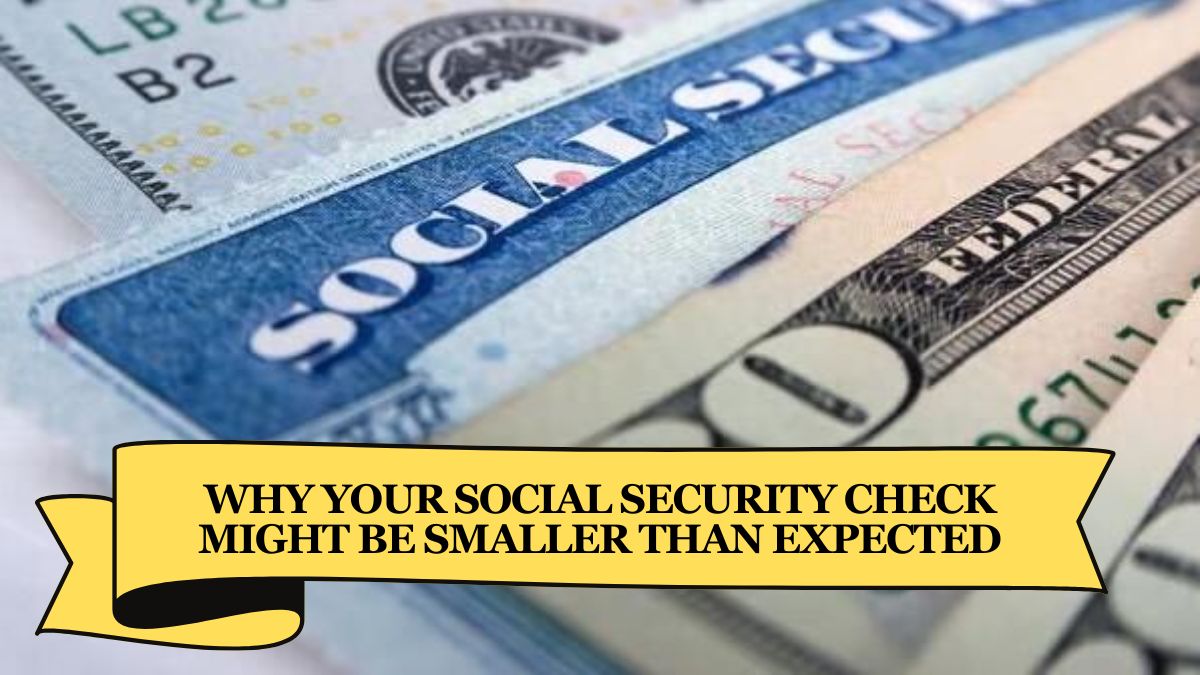Social Security is a key financial support for many people during their retirement years. It’s designed to help replace a portion of the income you lost when you stopped working. However, if you’re receiving Social Security benefits and notice that your check is smaller than you expected, it can be a stressful surprise. There are several reasons why your monthly Social Security check may be less than what you anticipated. Understanding these reasons can help you better plan and avoid unexpected financial stress.
In this article, we’ll break down the most common reasons why your Social Security check might be smaller than expected. By the end, you’ll have a better understanding of how Social Security works and how to avoid any unpleasant surprises in the future.
You Took Benefits Early
One of the most common reasons for a smaller-than-expected Social Security check is taking your benefits early. You can start receiving Social Security benefits at the age of 62, but if you choose this option, your benefits will be less than what you would receive if you waited until your full retirement age (FRA).
Your FRA depends on your year of birth, and for many people, it falls between 66 and 67 years old. If you decide to take Social Security at 62, you could see your monthly payments reduced by as much as 30%. That’s a big cut to your income, so it’s essential to carefully consider when you start receiving Social Security benefits. For example, if your FRA is 67 and you start at 62, your check will be 30% smaller.
You Are Earning Income from a Job Before Full Retirement Age
Many people work while receiving Social Security benefits. However, if you haven’t reached your FRA and you’re still working, you’ll face an earnings limit. This means that if you earn too much money, some of your Social Security benefits will be withheld.
For 2024, if you earn more than $22,320 before reaching your FRA, your benefits will be reduced. If you’re going to reach FRA in 2024 but haven’t yet, the earnings limit increases to $59,520. The good news is that any benefits withheld because of your earnings are returned once you reach FRA. But until then, you may find that your checks are smaller than expected.
It’s important to plan accordingly if you’re working and also receiving Social Security. You may need to limit your earnings to avoid losing part of your Social Security benefits.
You’re Paying for Medicare Premiums
Medicare is a government program that helps cover healthcare costs for people over 65. If you’re receiving Social Security benefits and are enrolled in Medicare, your monthly Part B premium will be automatically deducted from your Social Security check.
In 2024, the standard monthly Part B premium is $174.70, which is an increase from the previous year. If you’re paying this premium, it will reduce the amount of your Social Security check. Keep in mind that Medicare premiums can increase over time, which means the amount you receive from Social Security could continue to decrease. While this may not be a major issue for everyone, it can add up, especially if your check was already smaller than expected.
How to Avoid Surprises with Your Social Security Benefits
It’s important to know the rules surrounding Social Security so that you can avoid any surprises with your benefits. If you’re still working before reaching your FRA, consider limiting your earnings to the annual limit to avoid losing part of your Social Security check. Additionally, if you can afford it, consider delaying your Social Security benefits until your FRA to receive the full amount.
Lastly, be aware of the Medicare premiums and how they impact your benefits. By understanding how these factors work, you can make informed decisions about when to start receiving Social Security and how to manage your benefits effectively.
In conclusion, your Social Security check may be smaller than expected for several reasons, including taking benefits early, earning too much income while still working, and paying Medicare premiums. It’s crucial to understand the rules and how these factors can affect your monthly check so that you can make decisions that minimize the impact on your financial security.
The more informed you are about how Social Security works, the better you can plan your retirement and avoid unexpected financial difficulties. Remember, some of these factors, like working and earning too much, may be within your control. Being proactive and staying informed can help you ensure that your Social Security benefits provide the support you expect.
Must Visit: California State Online

